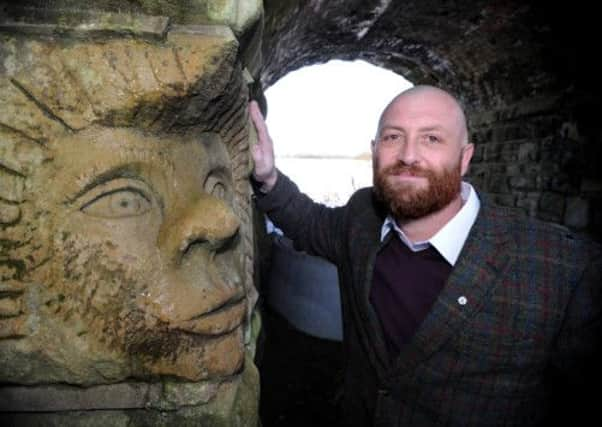Poetic link between past and present


Steve Ely used to be Mr Ely, who taught my kids at secondary school.
Of course even then he was Steve Ely, but I only knew him as Mr Ely.
Advertisement
Hide AdAdvertisement
Hide AdI’m not saying this because I think it gives me any kind of insight into his work; in fact, the opposite is the case. I find it hard to reconcile the sensible man in the suit I met on parent’s evenings with the author of this remarkable firework of a book, a laying out of new myths, an almost wholly successful attempt to link the ancient and the modern, the near past and the distant past of the borderlands of West and South Yorkshire where pits bump against old woodland in an almost Lawrentian way. Perhaps there’s a lesson there about always looking (figuratively) behind the teacher’s jacket and trying to spot the beating heart beneath. I’m sorry if that image seems a bit earthy but that’s the way Steve Ely’s amazingly elemental writing makes me feel.
Oswald’s Book of Hours is a collection of poems dedicated to the memory and celebrating the influence of the Northumbrian King Oswald who reigned from 635-642 AD and who lives on in this collection as a kind of unofficial timeless King of the North. A Book of Hours was traditionally commissioned by the wealthy and contained prayers, psalms and texts to be sung at the canonical hours from matins to compline. Steve Ely has reclaimed the idea of the Book Of Hours for us all, and has created a muscular and musical language for these pieces, which echoes writers like Ted Hughes and Basil Bunting and Tony Harrison but which is, in the end, his own. His Matins take place in a ‘force eight from Lundy and the Irish Sea in the dark moon of the Solstice’ and his Compline ends with the same apocalyptic weather: ‘Outside, wind got up from nowhere/ and rain came down in sheets, rattling/the darkened windows. Moon snuffed out by clouds.’
In between, Ely gives us a world of fighting dogs, hares, ferrets and other assorted components of a White Rose Bestiary.
One of the sections in the book, Memorials of the Saints, is a sequence of sonnets celebrating Yorkshire figures past and present, from Robin Hood to Arthur Scargill. (Okay, I know they claim Robin in Nottinghamshire but in those days the greenwood spread a long way and county boundaries were as wavy as smoke). The sonnets to Robin Hood and to a contemporary figure, Wayne Johnson, distil all that’s best about Ely’s language and ideas. Here’s the man Ely calls Robinhode: ‘You bled out by cock-crow, your lard-white/unsumped body crimsoning Roger’s couch./The arrow earthed in Barnsdale and water/came forth. There drinks the fox from his own/cupped hand, under the keeper’s gun.’ This is Wayne Johnson: ‘Careful what you say, though, because he’ll flip/like that; he’ll do you in the bogs or outside/the fish-shop, leave you paramedicked/in the street. Are we glad he’s on our side!’
Advertisement
Hide AdAdvertisement
Hide AdWith references to Christian and pre-Christian ritual, Old English and contemporary Yorkshire dialect, Latin and Greggs and Reebok trainers, Ely creates a linguistic world where the whole of Yorkshire history seems to be happening at once. Richard Rolle, the Hermit of Hampole, can rub shoulders with a striking miner and it seems to make perfect sense that John Nevison, the notorious Yorkshire highwayman and Robert Aske, the leader of the sixteenth century rebellion in York, can be part of the mix.
Alongside his novel Ratmen, this collection will cement Steve Ely’s reputation as someone who is creating a new Yorkshire literary landscape that will be talked about for years to come. I wish I’d asked him about it at parent’s evening.
Oswald’s Book of Hours by Steve Ely, published by Smokestack Books, out now.
Teacher, poet and novelist
Ely’s first book was a novel, Ratmen, published by Blackheath Books in 2012; it’s a modern parable about ratcatchers in an unidentified area of Yorkshire.
Advertisement
Hide AdAdvertisement
Hide AdOswald’s Book of Hours is published by Smokestack Books, one of the North’s leading poetry publishers; they also publish two volumes of the political cartoonist Martin Rowson’s Limerickiad.
Steve Ely describes himself as living in the Osgoldcross Wapentake, which is a kind of Yorkshire of the mind.
Ely’s second name is pronounced ee-lie, presumably so that we don’t confuse him with the genteel East Anglian town.